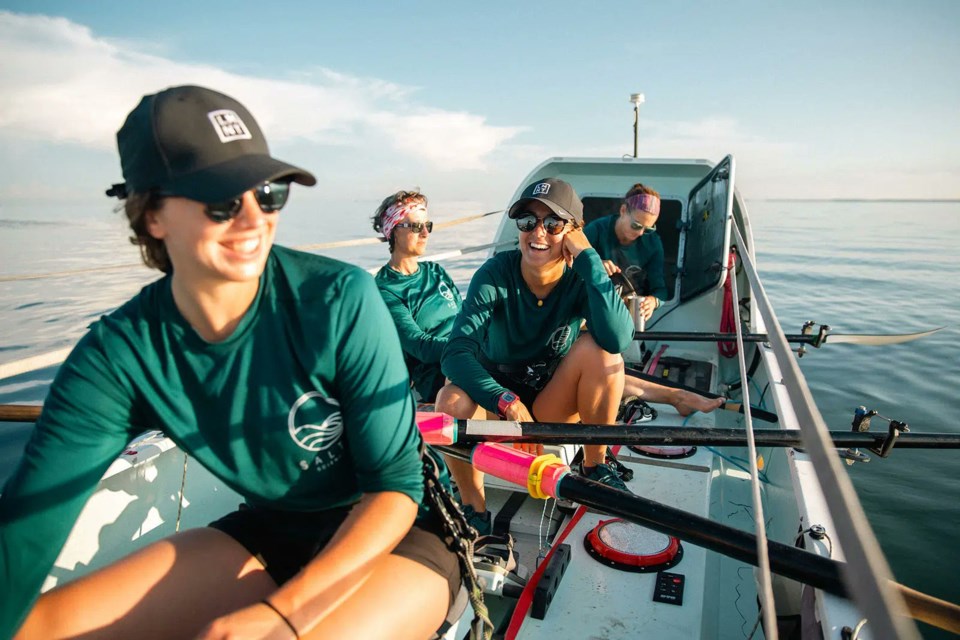Two Metro Vancouverites are set to row across the Atlantic Ocean as part of an all-women crew.
Marine biologist and current UBC student Lauren Shea, SFU Professor of Marine Ecology Isabelle Côté, marine scientist and National Geographic explorer Chantale Bégin, and marine ecologist Noelle Helder are linked by their love for the ocean.
In 2021, the four women decided to form a team named Salty Science, join the annual Talisker Whiskey Atlantic Challenge race, and raise $500,000 for marine science and conservation.
The race begins in December 2023, and the women-powered crew will have had two years to prepare.
With over 5,000 km ahead of them, the team will cross the ocean without any support, carrying everything they need with them and rowing in pairs in two-hour shifts for 24 hours each day.
"We will battle mental and physical exhaustion, huge calorie deficits, heavy weather, and extreme sun exposure," the crew shares on their website.
The Atlantic Challenge is known as the world’s toughest ocean rowing race.
'You need to do something extraordinary'
The crew is often asked why they chose to undertake such a difficult journey.
"I'm doing this because I know it's going to be hard," shares Côté. "This is going to be physically harder [and] mentally harder than anything else I've ever done in my life."
It's the intensity of the journey that is the most impactful, the professor adds. "If you really want to convince people and engage people and make people realize how important something is, you need to do something extraordinary."
Shea agrees, noting that if the crew can accomplish this feat, then they can overcome other challenges in marine conservation. She cites teammate Helder who once said that "we're rowing across the ocean for the ocean, but we're also rowing to inspire the next generation of ocean problem solvers."
The team is fundraising for three organizations that use education to enable marine conservation; Shellback Expeditions, GreenWave, and B.C.'s Bamfield Marine Sciences Centre.





